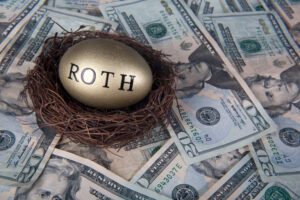If You Win the Big Jackpot Expect the IRS to Coming Knocking
Many people from all over the country enjoy gambling. Whether it’s big time poker, playing the slots or betting on sporting events, there are a lot of people who enjoy games of chance and the idea of winning something for nothing. Of course, most of the time, the house wins and the player walks away empty handed. When a player does win, it’s usually cause for a celebration. However, the big victory can be short-lived when the winner discovers that the taxman wants his piece of the pie as well.
In fact, the IRS is looking to really crack down on gambling earnings. As it stands rights now, when a person plays the slots he or she has to report any earnings of $1,200 or more to the IRS. The machine even stops working as soon as someone wins. It won’t start again until after a casino worker has presented the lucky winner with the necessary tax papers. However, recently the IRS threw out the idea of lowering that threshold down to just $600.
To no one’s surprise, many gamblers hate the idea. Realistically, they have a good point, too, because most people who play the slots never win enough to make up for their losses, so why should they have to pay taxes if they get lucky once or twice? Time will tell if the IRS end up getting the threshold lowered or not, but gamblers and casinos alike oppose the idea. For small time gamblers the idea seems unfair, and casinos say it would only take the fun out of the game for players.
The Roth Way to Riches
The Roth Way to Riches By Roy Lewis With all the recent tax-code changes, it seems a number of taxpayers have forgotten the Roth IRA. That’s a shame, because it’s far more than an ordinary retirement savings account. Roth IRAs are tax-favored accounts to which qualified taxpayers can make non-deductible, after-tax contributions. Those contributions can…
Health Savings Accounts (HSAs)
Health Savings Accounts (HSAs) Medicare legislation enacted in December 2003 provides for a prescription drug benefit that won’t exist until 2006. But also part of the new law is a provision that went into effect on January 1, 2004—the creation of the Health Savings Account (HSA). By opening an HSA, you may be allowed to…
Choosing Your Executor and Trustee
Choosing Your Executor and Trustee You know that it’s vital to make a proper will and keep it up to date. No less critical is the need to select your executor or personal representative with care. You may believe that any friend or relative whom you might select could do the job. Perhaps so. But…
Estate Planning is Not “One Size Fits All”
Estate Planning is Not “One Size Fits All” Married, never married, widowed, divorced—each of us has unique needs when it comes to how and to whom we make our bequests. Here, in a brief discussion, are a few checkpoints for developing an estate planning strategy for people who are on their own. Review your will…




